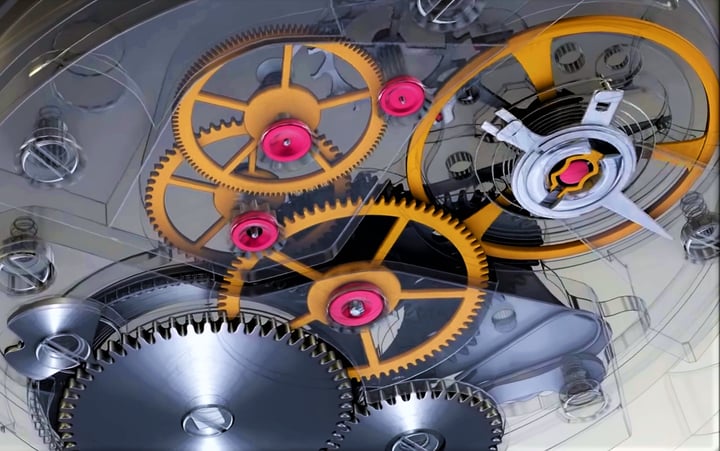

The markings that are inscribed on the sun dial correspond to the time of day, or the hours. It displays the shadow on the flat surface and moves with the sun. The position of the sun against the dial would point directly to a time, which reflected the rotation of the Earth.
#WHO INVENTED THE CLOCK HOW TO#
Even now people learn how to tell the time somewhat accurately from the sun in case they are ever in a situation where they do not have access to a working clock of some kind. The position of the sun in the sky above us was used in order to tell what the time of day was, but even then this was simply a best guess situation. The first clock was of course the sun dial, which utilised the way in which humans had told the time for centuries before its arrival. With the invention of batteries came the invention of the first electric clock which was powered by dry pile batteries. They remained this way until the invention of digital clocks that came along with electricity in the 1800s. The basic premise has remained the same since their creation in the 1600s. This is why so many antique clocks are still able to run so efficiently with little maintenance or restoration. They utilised the same equipment as the British watch companies in a bigger scale in order to produce accurate machines that will function adequately for years to come. The British specialised in the production of watches in the 1800s, but it was the United States where the manufacture of clocks really took off. The smallest error could mean that the clock would not work so accurately and potentially not at all. Due to the precise nature of creating a clock it was certainly hard to rush through the process. Now that the first mechanical clocks had been invented it was only a matter of time before they were able to be mass produced. Daniel Quare is attributed for introducing the concentric minute hand as well as the second hand later on. He also introduced the pendulum suspension spring. The first model of the clock was built in Hague, but in England the idea really took hold and the first longcase clock was created, or also known as the grandfather clock, by clockmaker William Clement in 1670. He also had the first pendulum clock made in the 17th century.

He created the mathematical formula in which pendulum length is related to time. Who invented clocks? When were clocks invented?Īlthough it was Galileo who had the initial idea of using a swinging bob to regulate the motion of a time telling device it was actually Christiaan Huygens who is credited with being the inventor of the modern pendulum clock. But what is the history of the clock and who invented such a revolutionary creation? When did the first clocks appear? Here we will look at the brief history of clocks and how we have come from the mechanical clock to those of the present day. In this day and age everyone needs to know the time, from work to outings to a decent time to go to sleep, our lives are dictated by the time and this is why it is a necessity, not just a want in our day to day lives. From the sun dial to the digital clock, clocks have progressed and grown with the times as technology has changed in leaps and bounds. Each has their own pros and cons which is why they continue to develop side by side both as favourites for us all in the previous decades up until the modern era. These are the two types of clocks that we have come to know in this day and age. The digital clock was much more practical but of course relies on the constancy of an electrical outlet in order to run consistently.

No longer would they need to be wound once a day and no longer would we need to clean the inner workings quite so often. The digital clock was invented in order to minimise the upkeep of a mechanical clock. With the invention of electricity it was inevitable that our need for time telling would progress along with it. If they are wound once a day and the inner workings are maintained with regular cleaning you will find that there is little that can go wrong with a mechanical clock. A mechanical clock is a centrepiece for many homes and provide an accurate telling of the time as long as they are cared for correctly. For centuries they have been imperative in the life of people of all classes and eras. Clocks have been a primary time telling device for so long.


 0 kommentar(er)
0 kommentar(er)
